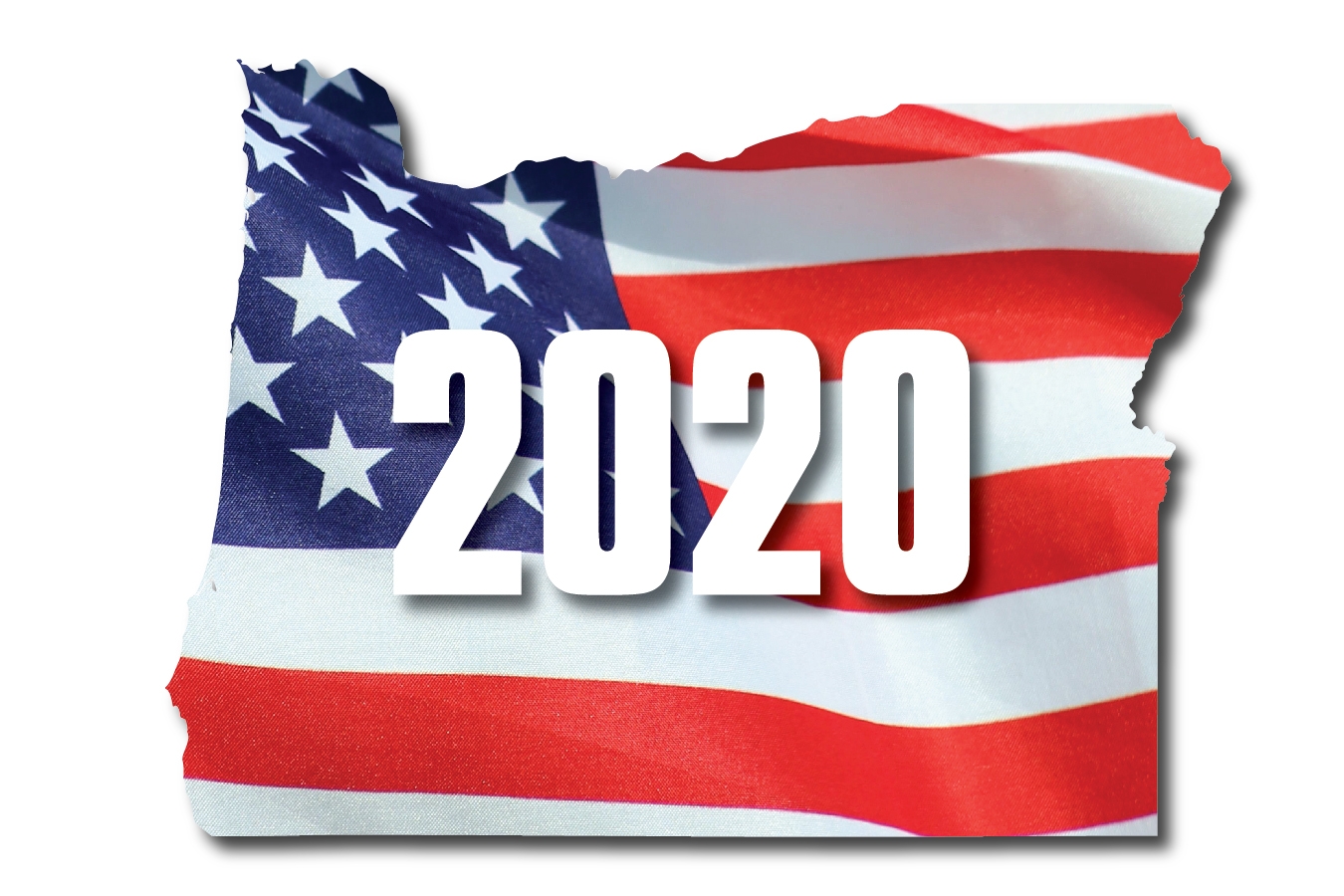Divergent solutions for businesses reopening and renewable energy are top of mind as advocacy groups battle for votes this election season.
For Graham Trainor, president of the Oregon AFL-CIO, the statewide federation labor unions, the election season has been about supporting policies and candidates who fight for workers’ interests in the post-COVID-19 workforce. For Oregon Business and Industry (OBI), the state’slargest business association, it has been about ensuring its 1,600 members stay competitive.
News about the federal election has dominated the news cycle. But state advocacy organizations have their sights set on the February legislative session, where questions of how the economy adapts to COVID-19 and the transition to a low-carbon economy will be addressed by lawmakers. Due to their impact on business, these issues are top of mind for labor and business advocates.
The 2020 election has triggered unprecedented levels of enthusiasm and engagement across the country. Oregon’s AFL-CIO has seen an “unprecedented” level of volunteers this election cycle.
The organization has called more than 200,000 voters. Trainor says COVID-19 has exposed the “cracks and gaps” in society, and made people passionate about rebuilding a fairer economy.
RELATED STORY: Roaring Back
“Nobody has an interest in rebuilding the system we had before,” says Trainor. “We’ve seen how the current system advantages the well-connected and the wealthy and ignores workers, especially workers of color and women. We want agencies and elected officials to have a workers-first perspective.”
Trainor was vocal about his organization’s support for Shemia Fagan for secretary of state, in part because of her promise to audit the Oregon Employment Department.
Thousands of Oregonians waited long periods of time before their unemployment checks arrived. Effective distribution of benefits will be critical, says Trainor, as business and families will likely require more help moving forward.
Trainor envisions a post-COVID-19 economy in which public health measures and social safety netting play a larger role in people’s lives. Despite tobacco taxes affecting low-wage earners more often than higher-wage earners, Trainor’s organization supports Measure 108, which places a tax on vaping and tobacco products. The tax money will go toward public health initiatives. Trainor described the measure as “well-crafted.”
At Oregon Business and Industry, the largest statewide business association, the election season has meant finding candidates willing to compromise. With polls showing Democrats poised for a strong election season, communications director Nathaniel Brown emphasized that his organization’s Political Action Committee supports Oregon politicians who have demonstrated a willingness to work across the aisle. Brown pointed to support for Republicans as well as Democrats.
The PAC, called Associated Oregon Industries, has spent $2,594,340 on Republican candidates and $170,525 on Democratic candidates over the course of its history.
“Our primary objective has been balance,” says Brown. “We believe a well-balanced Legislature, with both Republicans and Democrats at the table, ensures that the voices of all Oregonians are heard, and that leads to better policy.”
Among its beneficiaries is Tim Knopp, senator from Oregon’s 27th district. Knopp is viewed as a voice of bipartisanship in the Senate for his work enacting workplace sexual harassment protections, equal pay, public pension reform, paid family and medical leave. Knopp was also among the 11 Republican senators who walked out on Senate proceedings to scupper cap-and-trade legislation.
One area OBI is less willing to compromise on is carbon policy. Although OBI acknowledges the threat of climate change, Brown presented a long list of criteria any carbon policy would have to meet for it to gain OBI’s support.
Among the hurdles was that any carbon policy could not create a competitive disadvantage for Oregon. Policies should not change unless global greenhouse reduction efforts will pace.
“This is not a time for costly new regulations and more taxes, especially considering the 41% increase in state business taxes just since 2019,” says Brown.
Trainor described climate change as an existential threat requiring swift and decisive action. He argued renewable energy as a better investment for healthy, family-wage jobs, and that our state should become a leader in renewable energy policy, not a follower.
He voiced support for Senator Jeff Merkley’s Good Jobs for the 21st Century Act, which would accelerate the creation of renewable energy union jobs.
When it comes to adjusting to the pandemic economy, Trainor says the health and safety of workers is non-negotiable. He wants stricter regulations in place to preserve the safety of essential workers. “We talk about front-line workers being heroes but don’t treat them like heroes. Going to work shouldn’t be a death sentence,” he says.
While OBI describes workers’ health as a priority, Brown argues that now is the time to begin the difficult reopening process. “Our government leaders must ensure that every policy they adopt has a job recovery lens,” says Brown. “Does it hurt or help put Oregonians back to work? If it hurts, the policy should not move forward. That must be the imperative.”
One topic upon which the organizations agree is international trade. Both Trainor and Brown acknowledged Oregon’s status as a trade-dependent state, and were encouraged by the United States–Mexico–Canada Agreement.
With surges of COVID-19 across the country, 150,000 Oregonians unemployed and destructive weather on the rise, discussions of how to mitigate the issues will remain part of the statewide conversation for years to come.
Once the election is over, all eyes will be on Oregon’s next legislative session, where the results of the election will play out.
To subscribe to Oregon Business, click here.





